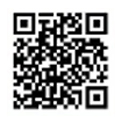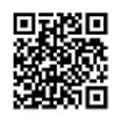目的探讨采用血栓弹力图(TEG)评价阿司匹林和氯吡格雷治疗急性脑梗死患者的抗血小板效果,以指导对急性脑梗死患者抗血小板聚集药物治疗的个体化调整。方法选择急性脑梗死患者82例,予阿司匹林100 mg和氯吡格雷75 mg联合治疗7 d后,采用TEG仪检测花生四烯酸(AA)途径诱导的血小板抑制率和腺苷二酸(ADP)受体途径诱导的血小板抑制率,比较患者经两种途径诱导的血小板抑制率以及患者对阿司匹林和氯吡格雷治疗反应的差异。同时选择急性脑梗死患者40例作为对照组,单用阿司匹林100 mg抗血小板治疗7d,对比两组TEG参数(R值、K值、angle角、MA值)。结果急性脑梗死予阿司匹林、氯吡格雷双抗血小板,阿司匹林对AA途径的抑制率明显高于氯吡格雷对ADP受体途径的抑制率,差异有统计学意义(P<0.01);对阿司匹林反应良好的患者,4例对氯吡格雷无反应,15例反应低下;对氯吡格雷反应良好的患者,仅1例对阿司匹林反应低下。对氯吡格雷反应低下者,3例对阿司匹林无反应,5例低下,6例对阿司匹林有效,15例良好。两种疗效有一定关联性(P<0.01)。对阿司匹林反应良好+有效为62例,反应低下+无效者20例;氯吡格雷反应良好+有效者42例;反应低下+无效者38例,两种药物疗效差异有统计学意义(P<0.01)。单用阿司匹林组与双联抗血小板组比较两组患者R值、K值、α角、MA值均无明显差别(P>0.05)。结论采用TEG仪检测对急性脑梗死患者抗血小板治疗的疗效评价有较高的临床价值。双联抗血小板中阿司匹林对急性脑梗死患者血小板聚集的抑制作用强于氯吡格雷。患者对阿司匹林和氯吡格雷治疗的反应有差异性,部分对氯吡格雷反应低下者,可能对阿司匹林反应良好或有效。双联抗血小板治疗对血凝的影响较单用阿司匹林无明显差别。
当前位置:首页 / 血栓弹力图在急性脑梗死患者抗血小板治疗效果评价中的应用
论著
|
更新时间:2015-10-14
|
血栓弹力图在急性脑梗死患者抗血小板治疗效果评价中的应用
Application of thromboelastography in evaluating the therapeutic effect of antiplatelet therapy in patients with acute cerebral infarction
内科 201402期 页码:148-151
作者机构:福建医科大学省立临床学院/福建省立医院神经内科,福州市350001
基金信息:(收稿日期:2014-01-15修回日期:2014-03-09)
- 中文简介
- 英文简介
- 参考文献
ObjectiveTo detect the antiplatelet effect of aspirin and clopidogrel in patients with acute cerebral infarction using a thromboelastograph(TEG) instrument in order to guide the individualized adjustment of anti-platelet aggregation drugs. Methods82 patients with acute cerebral infarction were selected, and all patients were treated with aspirin and clopidogrel for 7 days, a TEG instrument was used to detect arachidonic acid (AA) -induced inhibition rate of platelet aggregation and adenosine diphosphate (ADP) receptor-induced inhibition rate of platelet aggregation. The AA pathway and ADP receptor-induced inhibition rate of platelet aggregation, as well as the response differences of the patients between aspirin and clopidogrel therapy were compared. At the same time, 40 patients with acute cerebral infarction patients were selected as the control group, received 100 mg caspirin for 7 days. The parameters of TEG (R time、K time、α angle and MA) between the two groups were compared. Results① Patients with acute cerebral infarction received aspirin and clopidogrel for antiplatelet therapy, the inhibition rate of aspirin for the AA pathway was significantly higher than that of clopidogrel for the ADP receptor pathway (P<0.01). ②Of those who had good response to aspirin, 4 had no response to clopidogel and 15 had low response to clopidogel; Of those who had a good response to clopidogel, only 1 had low response to aspirin. Of those who had low response to clopidogel, 3 had no response to aspirin,5 had low response to aspirin ,6 had a good response to aspirin ,and 15 had good result. The two efficacies had some relevance (P<0.01).A total of 62 patients had a good + effective response to aspirin, and 20 had low response +ineffective to aspirin, while 42 and 38 patients had good + effective and low response + ineffective to clopidogel .There was significant difference in efficacy between the drugs (P<0.01). There were no significant difference in R time、K time、α angle and MA between control group and dual antiplatelet group (P>0.05). ConclusionTEG instrument is valuable in assessing the efficacy of antiplatelet therapy in patients with acute cerebral infarction , The inhibitory effect of platelet aggregation of aspirin is stronger than that of clopidogrel. The patients show differential response to aspirin and clopidogrel therapy. Some patients who have low response to clopidogrel may response well or may be effective to aspirin. There was no significant difference on blood coagulation between dual antiplatelet therapy and aspirin alone.
- ref




 注册
注册 忘记密码
忘记密码 忘记用户名
忘记用户名 专家账号密码找回
专家账号密码找回 下载
下载 收藏
收藏
